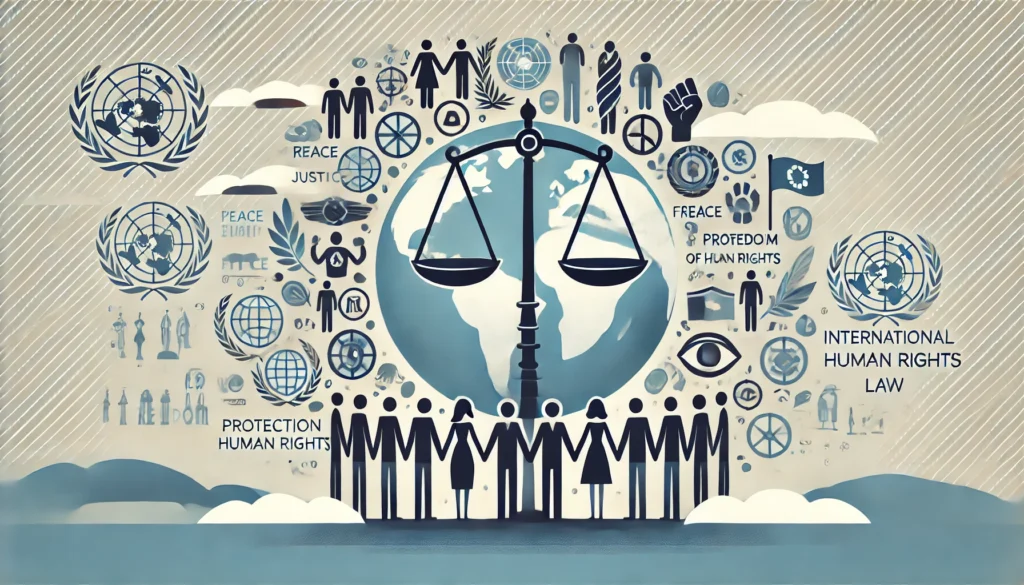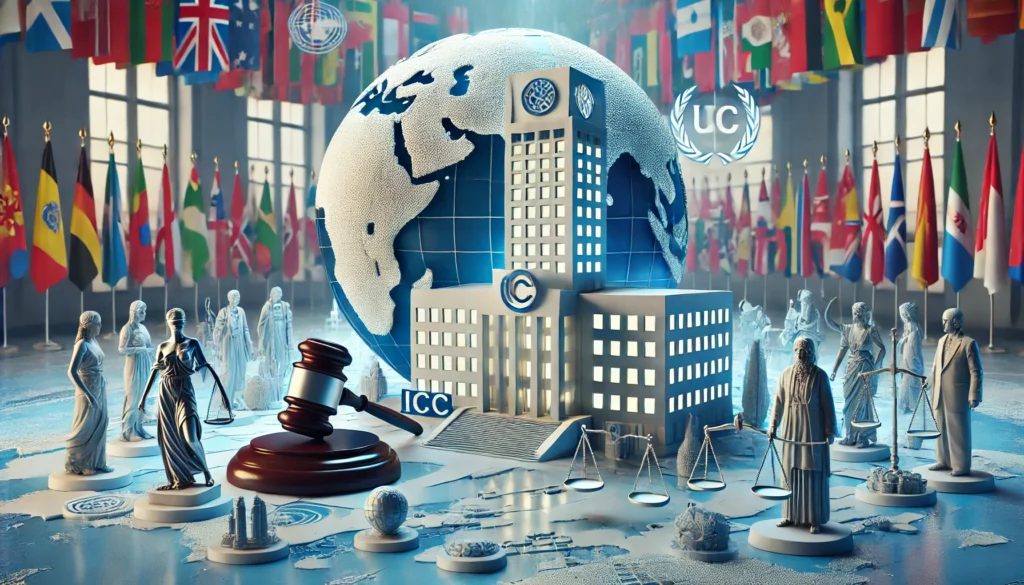Published on 20th February 2025
Authored By: Nitya Jain
Symbiosis law school, Pune
INTRODUCTION
Universal jurisdiction is a fundamental principle of the international law, in such cases location of the crime is not of much importance, though what is taken into consideration is the fact that such crimes are grave enough to impact the whole society leading other states to intervene to take this matter in their domestic courts on behalf of the international community. Universal jurisdiction mainly comes into place where other states prevent impunity and try their best to prevent further crimes. Universal jurisdiction is based on the idea of hostes humani generis—“enemies of all mankind” given by Henry Kissinger thus allowing other countries to prosecute even if there is no link present between the prosecuting country and the one where crime was committed.
In 1961, Universal Jurisdiction enabled Israel to prosecute a senior Nazi official, Adolf Eichmann, for his role in the Holocaust during World War II, leading the court to explain the fact that not only do all the crimes attributed to the appellant bear an international character, but their harmful and murderous effects were so embracing and widespread as to shake the international community to its very foundations. The State of Israel therefore was entitled, pursuant to the principle of universal jurisdiction and in the capacity of a guardian of international law and an agent for its enforcement, to try the appellant. That being the case, no importance attaches to the fact that the State of Israel did not exist when the offences were committed.[1]
INTERNATIONAL TREATIES AND ICC
There are different countries having their own respective laws to deal with crimes though due to various reasons they do not apply those laws sincerely or they are prejudiced for an example where a country fail to convict a particular leader thus leading towards establishment of the International Criminal Court (ICC) as a complementary to the universal jurisdiction leading other states to come forward and fight for justice . Further leading towards the foundation of several international treaties such as Geneva Conventions, Rome Statute, United Nation convention against torture, Genocide convention. With the help of these universally recognised treaties and convention the general customary law empowers to convict a person for genocide, crimes against humanity, extrajudicial executions, enforced disappearances and torture.
The court’s finding treaty the Rome statute of 1988 gives ICC jurisdiction over four major crimes such as genocide characterised as a specified intention of destroying a particular group, secondly ICC works for the crime against humanity those 15 crimes are well listed in the Rome statute thirdly the war crimes against the armed rebellions and fourthly the crime of aggression.[2] The genocide convention of 1948 was the first treaty to take genocide as an international crime making countries to prevent and punish them. The war crimes against the armed rebellion comes under the Geneva convention adopted in 1949 allowing countries to prosecute those responsible for torture.
PURE AND CONDITIONAL UNIVERSAL JURISDICTION
Universal jurisdiction is based on the principle that any state can convict any person to prevent grave heinous crimes irrespective of the nationality of the accused. Thus, further explaining the universal jurisdiction it classifies into pure or absolute universal jurisdiction and conditional universal jurisdiction sometimes also called ‘jurisdiction in absentia’.[3]
Pure Universal Jurisdiction
Pure universal jurisdiction works on the basis that state can exercise a prosecution even if the crime occurred was not in its territory leading to the application of domestic law on the convict which may lead to a harsher punishment than that from his own domestic law, for an instances there is the trial on war crime going on which might have a lesser punishment in the prosecutor’s domestic land than the one where the crime is taken into trial in a new state.
The pure universal jurisdiction opposes the principle of legality which is the foundation of criminal law stating the importance of foreseeability of the criminal conduct. Crimes prosecuted under pure universal jurisdiction are considered crimes against jus cogens norms (peremptory norms of international law).A prominent example of Pure universal jurisdiction can be the Eichmann Trial(Israel,1961).[4]
Conditional Universal Jurisdiction
In the conditional universal jurisdiction there exists a restriction which requires a link between the prosecuting state and the crime thus being conditional. Thus, making conditional universal jurisdiction less problematic then the pure universal jurisdiction as the principle of legality exists as the presence of the crime in the domestic country or the link present can be seen as foreseeable. Where Pure universal jurisdiction is applied in crimes like genocide, war crimes, crimes against humanity unconditional universal jurisdiction applies to crimes like piracy, terrorism and trafficking making the accused present within the domestic land. Example of conditional universal jurisdiction being Lotus case (France vs. Turkey,1927).[5]
UNIVERSAL JURISDICTION IN DEVELOPED AND UNDERDEVELOPED NATIONS
The representatives of different states gave their respective view points on Universal jurisdiction in the sixth UN committee, The sixth committee lead to various debates regarding the definition, scope and the characteristics of the universal jurisdiction leading countries having multiple thoughts upon the same. The concept of universal jurisdiction is varies significantly between developed and underdeveloped nations as in developed nations there are strong legal infrastructures available to prosecute, the states lack the fear of sovereignty they are strong enough and capable with their resources, while the underdeveloped countries faces obstacles such as fear of sovereignty other strong nations taking over their cases as universal jurisdiction possess a strong target on sovereignty of such countries. Thus, the sixth committee of UN had debate over universal jurisdiction end with such statements of the countries representatives.[6]
Developed Nations
FAISAL AL-THANI (Qatar) stated, “Impunity is a cause behind the commitment of mass atrocities around the world and universal jurisdiction is an additional legal tool to prevent impunity. The legal gaps must be addressed in order to end impunity and protect the rights of victims”
JULIAN SIMCOCK (United States) emphasized that, despite the importance of the issue of universal jurisdiction and its long history as a part of international law relating to piracy, basic questions remain as to how jurisdiction should be exercised in relation to universal crimes, as well as States’ views and practices related to the topic.
MICHAEL HASENAU (Germany) argued that such crimes should be tried by international tribunals, including the International Criminal Court, if the applicable complementarity criteria are met, the Code of Crimes allows Germany’s courts to work on a national level.
Undeveloped Nations
OMER DAHAB FADL MOHAMED (Sudan) remarked that, the efforts of the General Assembly should focus on the scope of the principle, as well as on conditions to be satisfied to use it. This should be undertaken while respecting the sovereignty of States and their own jurisdictions, as well as their national systems that combat impunity
AMMAR AL ARSAN (Syria) voiced concerns about The current world order is unable to maintain rule of law in a fair and just manner because of selectivity and double standards. Expressing concern about the exploitation of universal jurisdiction, he reaffirmed the principal role of the International Court of Justice and rejected the suspicious tendencies of some Governments to broaden the scope of universal jurisdiction in ways that would impair the sovereignty of States.
As observed from the representative’s statements in the sixth committee the major contrast between the ideology of the developed and underdeveloped nation regarding universal jurisdiction is the fact that, developed nations are worried regarding the gaps of the legal system to improve the universal jurisdiction matter to punish people for atrocities. While the underdeveloped countries associated together with Non Aligned Movement and the African group, worries about respecting the sovereignty of the nations, and raises voice against the double standards of the nations further expressing views on exploitation on universal jurisdiction, thus the fact that universal jurisdiction is made to have a fair and unjust legal system it revolved around the application in developed and underdeveloped nations subjected to external factors such as strong infrastructure and fear of losing sovereignty.
CONCLUSION
With the leading crimes such as genocide, piracy, crimes against humanity in the future universal jurisdiction can be observed working against the crimes relating to cyber security and environment. Thus there exists a strong need for improving the universal jurisdiction with further strong international treaties abiding the nations to work together and to prevent impunity. Universal jurisdiction’s future is complex as it needs to maintain a strong balance between enforcement of justice and to prevent sovereignty of the underdeveloped nations. Universal jurisdiction further requires collaboration among nations to ensure a better working among all and to achieve the goal of global justice without compromising on sovereignty. The underdeveloped nations lacking resources, infrastructure needs to prosecute under Universal jurisdiction preventing their sovereignty.
REFERENCES
[1] Attorney General of Israel v. Eichmann, 36 Int’l L. Rep. 277, 304 (Israel Sup. Ct. 1962)
[2] International Criminal Court, ‘How the Court Works’ https://www.icc-cpi.int/about/how-the-court-works accessed 11 January 2025
[3] See eg O’Keefe, ‘Universal Jurisdiction’ (n 16) 749-752; Langer, Eason (n 5) 816.
[4] Attorney-General of Israel v Adolf Eichmann (1961) 36 ILR 5 (DC Israel)
[5] S.S. Lotus (Fr. v. Turk.), 1927 P.C.I.J. (ser. A) No. 10 (Sept. 7)
[6] United Nations, ‘General Assembly Adopts Resolution on Universal Jurisdiction for International Crimes’ (Press Release, 19 December 2018) https://press.un.org/en/2018/gal3571.doc.htm accessed 11 January 2025



